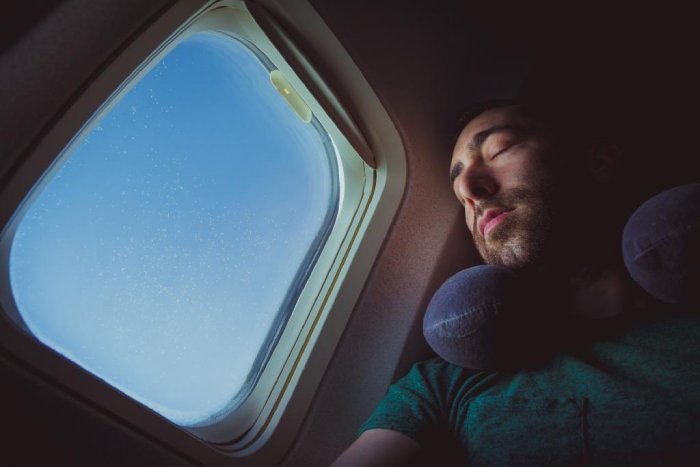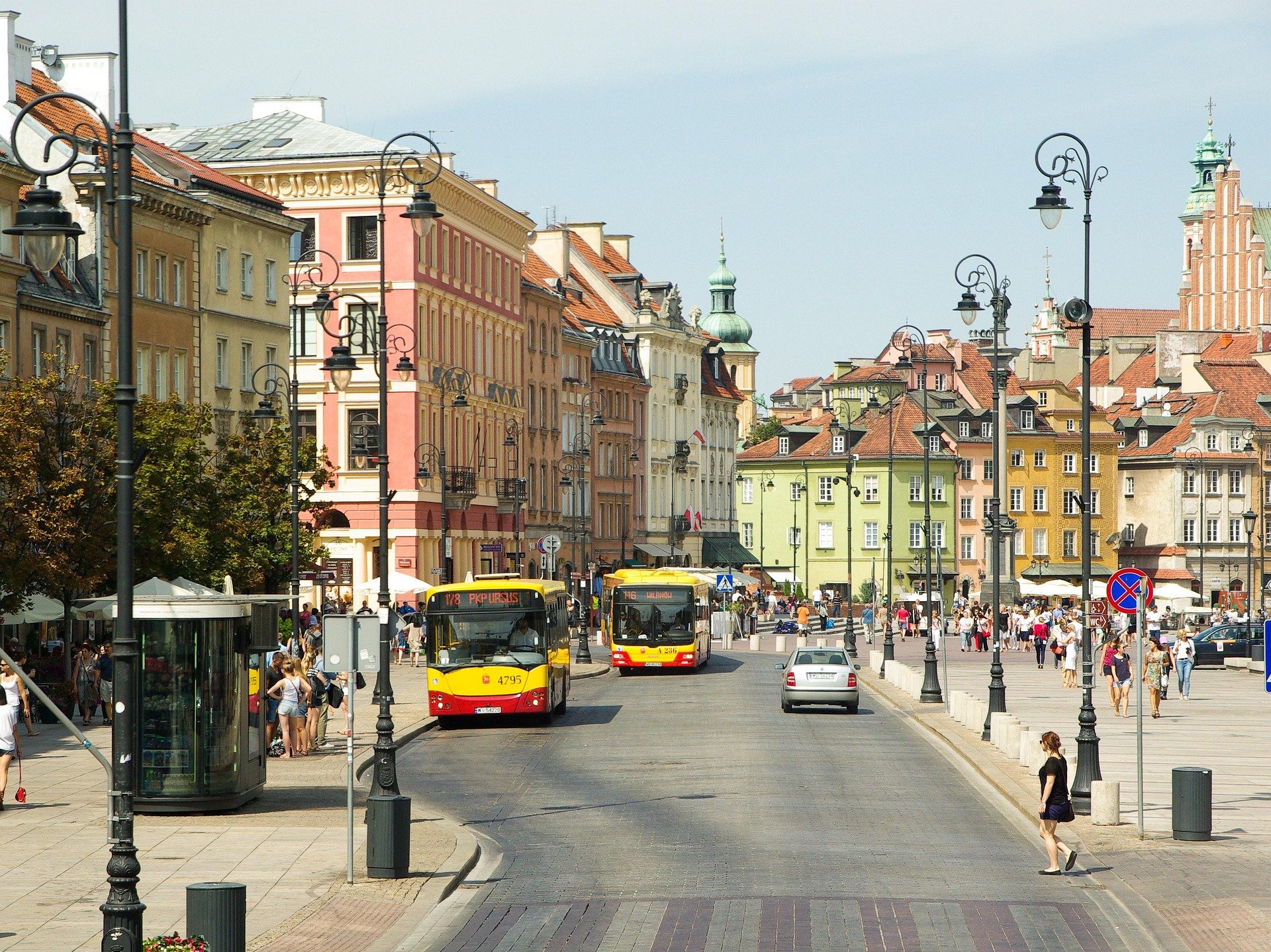Article Highlights:
- Gradually adjust your sleep schedule before traveling to minimize jet lag effects.
- Avoid alcohol and caffeine, which disrupt sleep patterns and worsen jet lag.
- Exposure to natural light helps reset your internal body clock in a new time zone.
- Short naps (20–30 minutes) can relieve fatigue without affecting nighttime sleep.
- Global Rescue offers 24/7 emergency assistance and advisory services to help manage jet lag during travel.
What Is Jet Lag?
Jet lag is a temporary sleep disorder that occurs when your body’s internal clock, or circadian rhythm, is disrupted by traveling across multiple time zones. This internal clock helps regulate sleep, appetite and other bodily functions, but when exposed to a new time zone, your body struggles to adjust.
Symptoms of jet lag include fatigue, difficulty concentrating, insomnia, irritability, digestive problems and general malaise. The severity of jet lag depends on factors such as the number of time zones crossed, the direction of travel (eastward or westward), age, and individual sensitivity to changes in routine.
Why Does Jet Lag Happen?
Jet lag occurs because our circadian rhythms are not instantly adaptable to new time zones. This is particularly noticeable when traveling rapidly across long distances, such as international flights. If you fly from New York to Tokyo, for instance, your body will still be on New York time despite Tokyo being 13 hours ahead. This misalignment between your body clock and the external environment triggers jet lag symptoms.
Flying eastward tends to result in more severe jet lag than westward travel, as it requires your body to shorten its day, which is more difficult than lengthening it. For example, traveling from Los Angeles to London (an 8-hour time difference) typically results in a more difficult adjustment than traveling from Los Angeles to Sydney (a 19-hour time difference).
How To Prevent Jet Lag Before You Fly
Gradually Adjust Your Schedule
One of the most effective strategies to prevent jet lag is to begin adjusting your sleep schedule before your departure. For instance, if you’re flying eastward and losing hours, try going to bed one hour earlier each night in the days leading up to your trip. Conversely, if you’re traveling west and gaining time, extend your bedtime. By gradually syncing with your destination’s time zone, you’ll help ease the shock to your system.
Manage Light Exposure
Exposure to natural light is one of the most powerful influences on your body’s internal clock. Before your flight, start aligning your light exposure with your destination’s daylight hours. Use blackout curtains or eye masks to block out light when you need to sleep or expose yourself to bright light when it’s daytime at your destination. If you’re traveling east, avoid morning light at your current location and get as much afternoon light as possible. This will help prevent jet lag by shifting your body clock in the right direction.
Stay Hydrated
Dehydration can worsen the symptoms of jet lag. Keep your body hydrated by drinking plenty of water before, during and after your flight. Avoid alcohol and caffeine, both of which dehydrate the body and can interfere with sleep.

Managing Jet Lag During the Flight
Sleep Strategically
When sleeping during the flight, try to align your rest with the nighttime of your destination. For example, if you’re flying to a location where it will be nighttime when you arrive, try to sleep on the plane to mimic that time zone. Use travel pillows, eye masks and noise-canceling headphones to create a comfortable sleeping environment.
On the other hand, if it will be daytime at your destination when you arrive, try to stay awake during the flight. Walking around the cabin occasionally and keeping yourself entertained with books, movies or puzzles can help keep you alert.
Consider Sleeping Aids
Some travelers find sleeping aids helpful for adjusting their sleep patterns during long flights. Melatonin is a popular choice for many as it’s a natural hormone that helps regulate sleep cycles. However, consult a healthcare provider before using any sleeping aids to ensure they are safe and appropriate for your needs.
Use Compression Socks
Long flights can restrict blood flow to your legs, which is why it’s a good idea to wear compression socks during air travel. They can help prevent blood clots, reduce swelling and improve circulation, especially during long-haul flights where you’re seated for an extended period.
How To Recover From Jet Lag Once You Land
Get Natural Sunlight
Once you arrive at your destination, the best way to realign your body clock is to get outside and expose yourself to natural sunlight. This helps reset your circadian rhythm and signals to your body that it’s time to be awake. Conversely, limit your exposure to light when it’s nighttime at your destination by using an eye mask or blackout curtains.
Take Short Naps
If you feel overwhelmingly tired after arriving, short naps (20–30 minutes) can help relieve fatigue without interfering with your nighttime sleep. Be careful not to nap for too long, as this can make it more difficult to fall asleep later. Try to stay awake until it’s nighttime at your destination to help your body adjust.
Prioritize Sleep Hygiene
Good sleep hygiene is crucial for overcoming jet lag. Keep your bedroom cool and quiet, avoid screens before bed and establish a bedtime routine to help unwind. Practicing relaxation techniques such as deep breathing or gentle stretching can help you fall asleep more easily.
Avoid Stimulants
As tempting as it may be to rely on caffeine to stay awake during the day, it’s better to avoid stimulants altogether while adjusting to a new time zone. Both caffeine and alcohol can interfere with your ability to get quality rest. Global Rescue experts advise avoiding these substances as they can disrupt your recovery from jet lag.
Tailoring Your Approach
Each traveler has their preferred ways of dealing with jet lag, and not all methods will work for everyone. Some travelers find success with melatonin supplements, while others prefer natural sunlight exposure. It’s important to try different strategies and find what works best for your body. If you find yourself jet-lagged and struggling to adjust, be open to experimenting with new approaches, including adjusting your sleep patterns before traveling.
Sleeping Challenges for Adventure Travelers
Adventure travelers often face unique challenges when it comes to preventing jet lag. If your itinerary includes physically demanding activities such as hiking or trekking, your body will already be dealing with physical stress, making jet lag symptoms more difficult to handle. For those embarking on adventure travel, consider planning a buffer day or two to allow yourself time to acclimatize before engaging in intense activities.
Sleeping Challenges for Business Travelers
For business travelers, time is often of the essence. You may not have the luxury of a recovery day to adjust to a new time zone. In such cases, plan by arranging your meetings when you’re likely to feel most alert. Business travelers should also prioritize staying hydrated and well-rested to ensure they’re in peak condition for important meetings and events.
The Global Rescue Connection
Jet lag may be an unavoidable part of international travel, but with proper planning and attention to your body’s needs, you can minimize its effects. Whether preparing to prevent jet lag or looking for ways to recover, experimenting with different methods and listening to your body will help you adjust to new time zones more effectively. With expert advice from Global Rescue and the right preparation, you can enjoy your travels without the burden of severe jet lag symptoms.
Global Rescue offers personalized travel advisory services and 24/7/365 emergency assistance. With a Global Rescue membership, travelers can receive tailored advice on dealing with jet lag, as well as medical evacuation and emergency services at no additional cost. For those facing jet lag recovery challenges, Global Rescue’s expert team is always available to provide support and recommendations on how to manage your condition.









